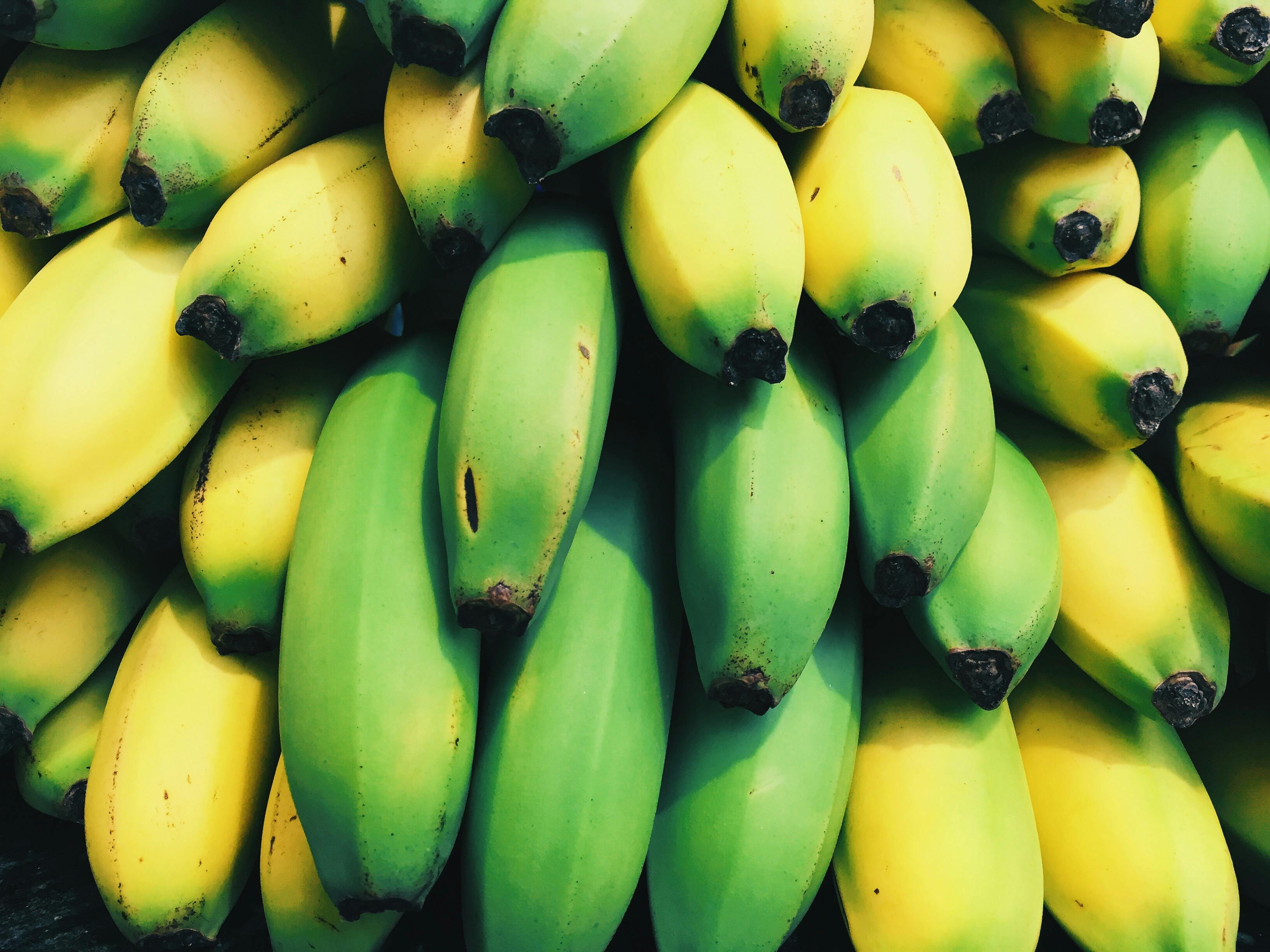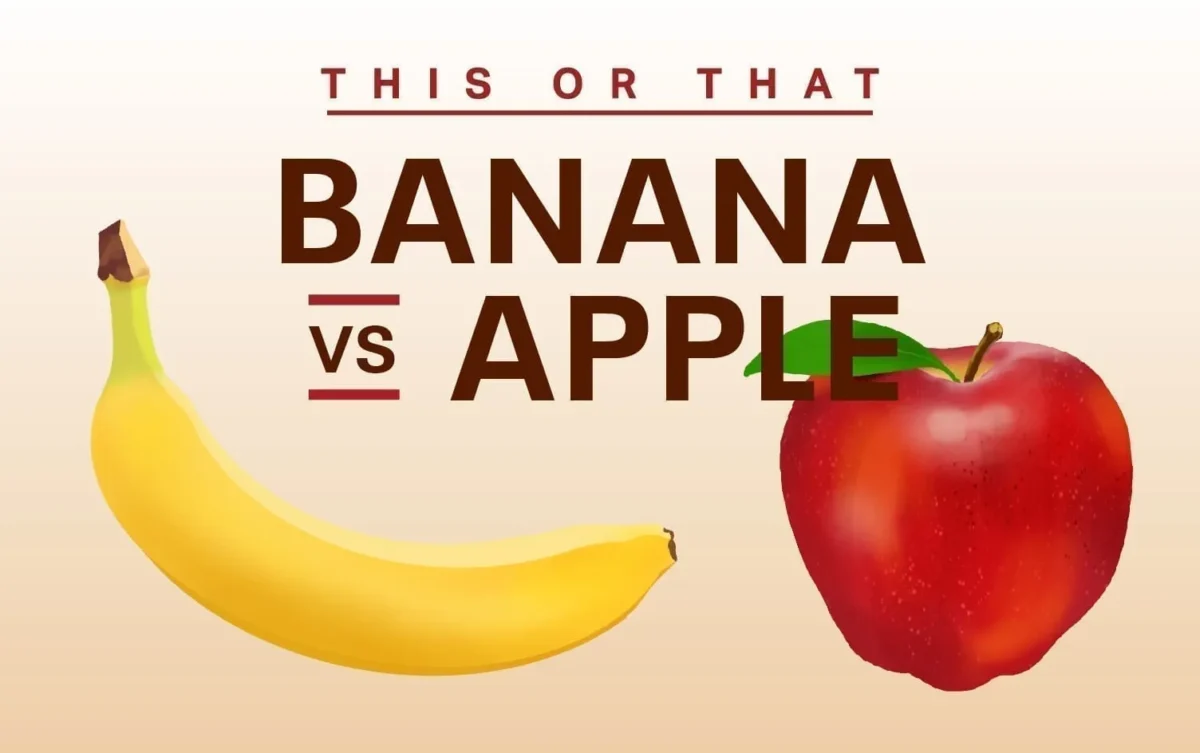Key Takeaways
- Rich Source of Potassium: A medium banana provides 422 mg of potassium, essential for regulating blood pressure and supporting heart function.
- Blood Pressure Regulation: Potassium in bananas helps balance sodium levels, reducing the risk of hypertension and stroke.
- Supports Heart Rhythm: Adequate potassium intake from bananas promotes a steady heart rhythm by facilitating electrical impulses in the heart.
- Nutrient-Dense: Bananas offer additional heart-healthy nutrients, including vitamin B6, vitamin C, dietary fiber, and magnesium.
- Versatile Dietary Addition: Easily incorporate bananas into meals and snacks to enhance overall cardiovascular health.
- Backed by Research: Studies show that higher potassium intake from bananas is linked to lower risks of heart disease and improved cholesterol management.

Imagine starting your day with a banana. It’s simple, but did you know this humble fruit packs a powerful punch for your heart? I’ve always loved bananas not just for their taste but for the incredible benefits they bring to heart health.
Importance Of Potassium For Heart Health
Potassium in bananas plays a crucial role in maintaining a healthy heart. It’s essential for various bodily functions that support cardiovascular health.
Regulating Blood Pressure
Potassium balances sodium levels in the body, lowering blood pressure. A medium banana contains approximately 422 mg of potassium, contributing to the daily recommended intake of 2,500-3,000 mg for adults. Lower blood pressure reduces the risk of heart disease and stroke.
Maintaining Heart Rhythm

Adequate potassium supports a steady heart rhythm by facilitating electrical impulses in the heart. Consuming bananas helps prevent irregular heartbeats and promotes efficient heart function. For example, eating two bananas a day provides around 844 mg of potassium, essential for maintaining optimal heart health.
Bananas: A Prime Source Of Potassium
I love how bananas deliver a substantial amount of potassium, essential for maintaining heart health. Adding bananas to your daily routine ensures you receive this vital nutrient seamlessly.
Nutritional Benefits Of Bananas
Bananas offer more than just potassium. They include:
- Vitamin B6: Enhances brain function
- Vitamin C: Strengthens the immune system
- Dietary Fiber: Promotes healthy digestion
- Magnesium: Supports muscle and nerve function
- Carbohydrates: Provides quick energy boosts
Comparing Potassium-Rich Foods
Bananas are among the top sources of potassium, but other foods also stand out. Here’s how they compare:
| Food | Serving Size | Potassium (mg) |
|---|---|---|
| Banana | 1 medium | 422 |
| Sweet Potato | 1 medium | 542 |
| Spinach (cooked) | 1 cup | 839 |
| Avocado | 1 medium | 708 |
| White Beans | 1 cup | 829 |
This comparison highlights how bananas provide a convenient and delicious way to boost your potassium intake alongside other nutritious options.
Scientific Evidence On Bananas And Heart Health
Research consistently shows that bananas contribute significantly to heart health, primarily due to their high potassium content. A study published in the American Journal of Clinical Nutrition found that individuals with higher potassium intake had a lower risk of stroke and hypertension[^1]. Potassium helps regulate blood pressure by balancing sodium levels in the body, reducing the strain on blood vessels.
Additionally, bananas contain dietary fiber, which supports cholesterol management. According to the Journal of Nutrition, increased fiber intake is associated with lower LDL cholesterol levels[^2]. This effect further diminishes the risk of heart disease.
Bananas also provide magnesium, essential for maintaining a steady heart rhythm. A deficiency in magnesium has been linked to irregular heartbeats and increased cardiovascular risk[^3]. By incorporating bananas into your diet, you ensure an adequate intake of magnesium, promoting overall heart stability.
Key Nutrients in Bananas Benefiting Heart Health
- Potassium: Regulates blood pressure and fluid balance.
- Dietary Fiber: Lowers LDL cholesterol levels.
- Magnesium: Maintains a regular heart rhythm.
- Vitamin B6: Supports metabolic processes essential for heart function.
Potassium-Rich Comparison
| Food Item | Potassium Content (mg per 100g) |
|---|---|
| Banana | 358 |
| Sweet Potato | 337 |
| Spinach | 558 |
| Avocado | 485 |
| White Beans | 561 |
Incorporating a variety of these potassium-rich foods, including bananas, can enhance heart health by providing essential nutrients that work synergistically to support cardiovascular function.
[^1]: Sacks, F. M., et al. (2010). “Effects on blood pressure of reduced dietary sodium and the Dietary Approaches to Stop Hypertension (DASH) diet.” New England Journal of Medicine.

[^2]: Anderson, J. W., et al. (2009). “Health benefits of dietary fiber.” Nutrition Reviews.
[^3]: Rosanoff, A., Weaver, C. M., & Rude, R. K. (2012). “Suboptimal magnesium status in the United States: Are the health consequences underestimated?” Nutrition Reviews.
Incorporating Bananas Into A Heart-Healthy Diet
Adding bananas to your meals enhances heart health by providing essential potassium and other nutrients. I incorporate bananas into various recipes to maintain a balanced diet.
Breakfast Options
- Smoothies: Blend one banana with a cup of spinach, ½ cup of Greek yogurt, and a tablespoon of chia seeds.
- Oatmeal Toppings: Slice a banana over a bowl of oatmeal and sprinkle with cinnamon and nuts.
- Banana Pancakes: Mix mashed bananas into pancake batter for a natural sweetness.
Snack Ideas
- Banana and Nut Butter: Spread two tablespoons of almond butter on a banana for a protein-rich snack.
- Frozen Banana Bites: Dip banana slices in dark chocolate and freeze them for a refreshing treat.
- Banana Chips: Bake banana slices at 200°F for two hours to create crunchy snacks.
Lunch Enhancements
- Fruit Salad: Combine banana slices with blueberries, strawberries, and a tablespoon of flaxseed.
- Spinach Banana Salad: Toss spinach leaves with banana slices, walnuts, and a lemon vinaigrette.
- Banana Wraps: Add banana slices to whole-grain wraps with turkey and avocado.
Dinner Incorporations
- Banana Curry: Include banana chunks in vegetable curry dishes for added sweetness and texture.
- Grilled Banana: Grill banana halves and serve them with a sprinkle of cinnamon as a side dish.
- Banana Stir-Fry: Add sliced bananas to stir-fried vegetables and tofu for a unique flavor boost.
Dessert Recipes
- Banana Ice Cream: Freeze bananas and blend them until creamy for a healthy dessert option.
- Banana Bread: Use three ripe bananas to bake a loaf of whole-grain banana bread.
- Banana Parfait: Layer banana slices with Greek yogurt and granola for a simple dessert.
Meal Planning Tips
- Daily Intake: Aim to include at least one banana in your daily diet to meet potassium needs.
- Variety: Incorporate bananas in different forms—fresh, frozen, or baked—to keep meals interesting.
- Portion Control: Limit to one or two bananas per day to balance carbohydrate intake.
Nutritional Benefits
| Nutrient | Amount per Medium Banana |
|---|---|
| Potassium | 422 mg |
| Vitamin B6 | 0.4 mg |
| Vitamin C | 10 mg |
| Dietary Fiber | 3.1 g |
| Magnesium | 32 mg |
Including these banana-based options supports blood pressure regulation, maintains steady heart rhythms, and contributes to overall cardiovascular health.
Conclusion
I’ve discovered that including a banana in my daily routine is a simple yet effective way to support my heart health. The potassium they provide helps keep my blood pressure steady and my heart rhythm balanced. Plus the vitamins and fiber give me the energy I need to get through the day. It’s easy to add bananas to my meals and snacks, making healthy eating both convenient and delicious. Incorporating this humble fruit into my diet has made a noticeable difference, and I encourage you to give it a try for your own heart health.
Frequently Asked Questions
What are the health benefits of eating a banana every morning?
Eating a banana every morning provides essential nutrients that support overall health. Bananas are rich in potassium, which helps regulate blood pressure and maintain heart health. They also contain Vitamin B6 for brain function, Vitamin C for immune support, dietary fiber for digestion, and magnesium for muscle and nerve function. Additionally, bananas offer a quick source of energy, making them an excellent choice to start your day.

How does potassium in bananas support heart health?
« The Nutritional Powerhouse: What’s in a Banana? Discover Its Amazing Health Benefits
Digestive Benefits of Bananas: Fiber and Enzymes – Transform Your Digestive Health Today »
Potassium in bananas plays a crucial role in maintaining heart health by regulating blood pressure. It balances sodium levels in the body, reducing the risk of hypertension and stroke. Potassium also supports a steady heart rhythm by facilitating electrical impulses in the heart, which helps prevent irregular heartbeats. Adequate potassium intake is essential for reducing strain on blood vessels and lowering the risk of heart disease.
Can bananas help regulate blood pressure?
Yes, bananas can help regulate blood pressure due to their high potassium content. Potassium helps balance the amount of sodium in your cells, which is vital for maintaining healthy blood pressure levels. Consuming bananas regularly can reduce the risk of hypertension by lowering the pressure on blood vessel walls, thereby decreasing the likelihood of heart disease and stroke.
What other nutrients do bananas provide besides potassium?
Besides potassium, bananas are a good source of Vitamin B6, which supports brain function, and Vitamin C, which boosts the immune system. They also contain dietary fiber for healthy digestion, magnesium for muscle and nerve function, and carbohydrates for quick energy. These nutrients work together to promote overall health and well-being.
How do bananas compare to other potassium-rich foods?
Bananas are a convenient and delicious source of potassium, but there are other potassium-rich foods available. Foods like sweet potatoes, spinach, avocados, and white beans offer similar potassium benefits. While bananas are easy to incorporate into meals and snacks, including a variety of potassium-rich foods can enhance your nutrient intake and provide additional health benefits.
What are some ways to include bananas in a heart-healthy diet?
Incorporate bananas into a heart-healthy diet by adding them to smoothies, using them as toppings for oatmeal, making banana pancakes, or adding them to wraps and salads. They can also be enjoyed as a quick snack or blended into desserts. Planning meals with bananas ensures you receive daily potassium intake while enjoying versatile and tasty options.
Is there scientific evidence supporting bananas for heart health?
Yes, recent scientific studies support the heart health benefits of bananas, primarily due to their high potassium content. Research indicates that higher potassium intake is associated with a lower risk of stroke and hypertension. Additionally, the dietary fiber in bananas helps manage cholesterol levels, and magnesium supports a steady heart rhythm, further reducing cardiovascular risks.
How much potassium does a medium banana contain?
A medium banana typically contains about 400-450 milligrams of potassium. This amount contributes significantly to the daily recommended intake, which is essential for maintaining healthy blood pressure, heart function, and overall cardiovascular health. Including a medium banana in your daily diet can help you achieve your potassium needs effectively.
















